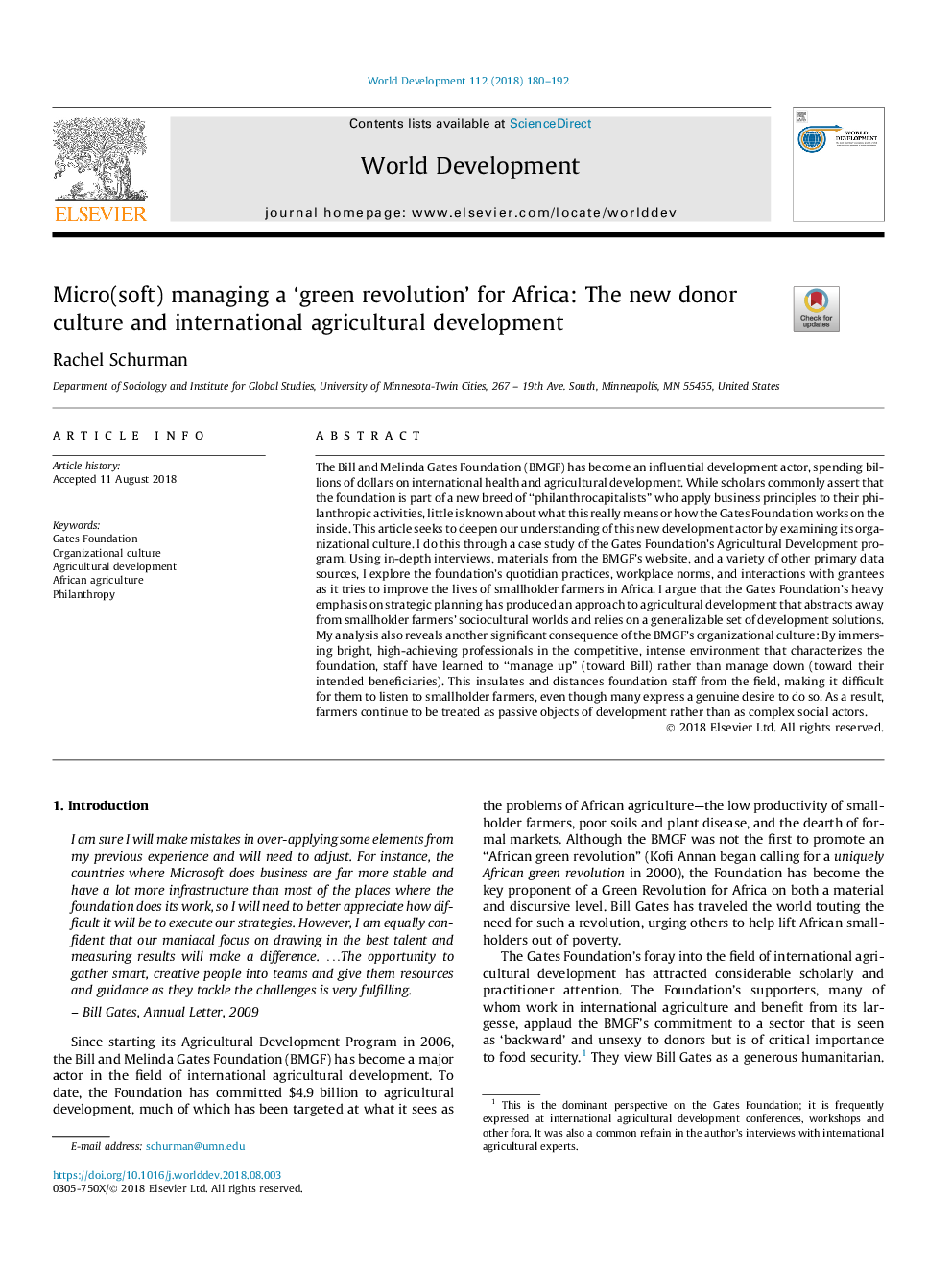| کد مقاله | کد نشریه | سال انتشار | مقاله انگلیسی | نسخه تمام متن |
|---|---|---|---|---|
| 9953085 | 1481106 | 2018 | 13 صفحه PDF | دانلود رایگان |
عنوان انگلیسی مقاله ISI
Micro(soft) managing a 'green revolution' for Africa: The new donor culture and international agricultural development
ترجمه فارسی عنوان
میکرو (نرم) مدیریت یک انقلاب سبز برای آفریقا: فرهنگ اهدا کننده جدید و توسعه بین المللی کشاورزی
دانلود مقاله + سفارش ترجمه
دانلود مقاله ISI انگلیسی
رایگان برای ایرانیان
کلمات کلیدی
بنیاد گیتس، فرهنگ سازمانی، توسعه کشاورزی، کشاورزی آفریقا، خیرخواهی
موضوعات مرتبط
علوم انسانی و اجتماعی
اقتصاد، اقتصادسنجی و امور مالی
اقتصاد و اقتصادسنجی
چکیده انگلیسی
The Bill and Melinda Gates Foundation (BMGF) has become an influential development actor, spending billions of dollars on international health and agricultural development. While scholars commonly assert that the foundation is part of a new breed of “philanthrocapitalists” who apply business principles to their philanthropic activities, little is known about what this really means or how the Gates Foundation works on the inside. This article seeks to deepen our understanding of this new development actor by examining its organizational culture. I do this through a case study of the Gates Foundation's Agricultural Development program. Using in-depth interviews, materials from the BMGF's website, and a variety of other primary data sources, I explore the foundation's quotidian practices, workplace norms, and interactions with grantees as it tries to improve the lives of smallholder farmers in Africa. I argue that the Gates Foundation's heavy emphasis on strategic planning has produced an approach to agricultural development that abstracts away from smallholder farmers' sociocultural worlds and relies on a generalizable set of development solutions. My analysis also reveals another significant consequence of the BMGF's organizational culture: By immersing bright, high-achieving professionals in the competitive, intense environment that characterizes the foundation, staff have learned to “manage up” (toward Bill) rather than manage down (toward their intended beneficiaries). This insulates and distances foundation staff from the field, making it difficult for them to listen to smallholder farmers, even though many express a genuine desire to do so. As a result, farmers continue to be treated as passive objects of development rather than as complex social actors.
ناشر
Database: Elsevier - ScienceDirect (ساینس دایرکت)
Journal: World Development - Volume 112, December 2018, Pages 180-192
Journal: World Development - Volume 112, December 2018, Pages 180-192
نویسندگان
Rachel Schurman,
